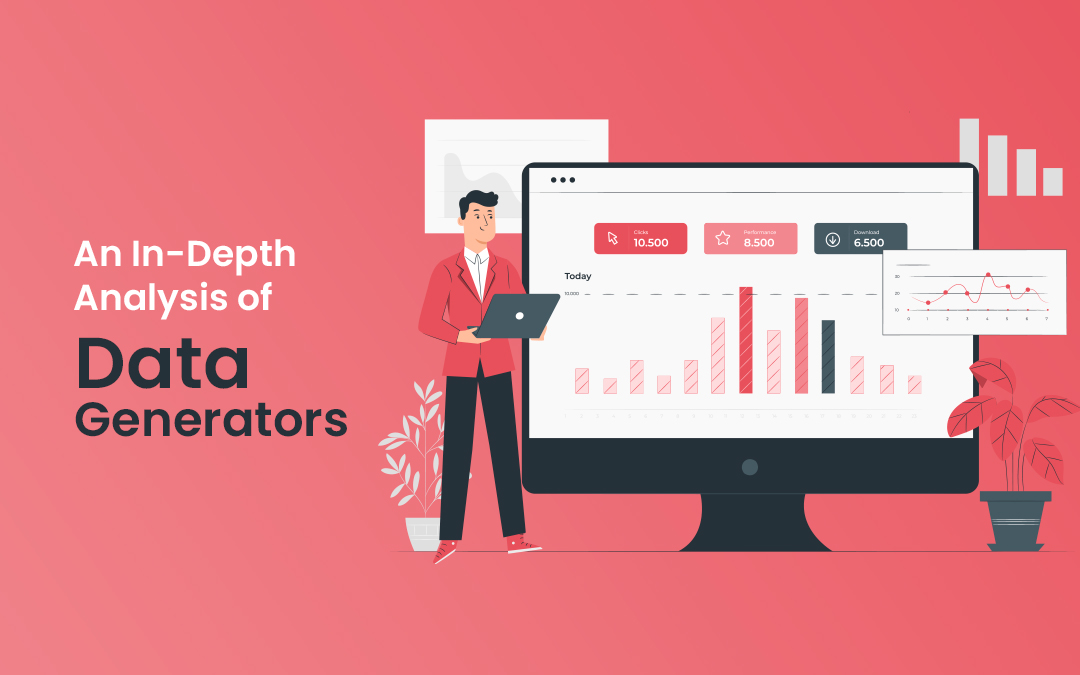
Data generators are critical components in modern data science, machine learning, and artificial intelligence. They play a pivotal role in creating synthetic data, augmenting existing datasets, and ensuring the robustness and reliability of models. This analysis delves into the various types of data generator, their applications, benefits, challenges, and future prospects.
Types of Data Generators
1. Random Data Generators
Random data generators produce data based on specified statistical distributions. They are useful in simulations, stress testing, and scenarios where controlled variability is necessary. Common examples include generators for uniform, normal, and Poisson distributions. One example of a random data generator is RNDGen.
2. Procedural Data Generators
Procedural data generators use algorithms to produce data following specific rules and patterns. These are often employed in fields like gaming, where they can create vast and detailed environments or characters without manual design.
3. Adversarial Data Generators
In adversarial training, data generators create challenging examples to test and improve models. Generative Adversarial Networks (GANs) are a prime example, where a generator creates fake data, and a discriminator evaluates its authenticity, pushing both to improve iteratively.
4. Domain-Specific Generators
These generators produce data tailored to specific industries or applications. For instance, synthetic medical data generators create patient records while ensuring privacy and compliance with regulations.
Applications of Data Generators
1. Data Augmentation
Data generators are extensively used to augment training datasets. In machine learning, especially in computer vision and natural language processing, they create variations of existing data to improve model generalization. Techniques include image rotation, translation, and noise addition.
2. Testing and Validation
Data generators provide diverse and extensive test cases for software systems, ensuring thorough validation. This is crucial in industries like finance and healthcare, where system failures can have severe consequences.
3. Simulation and Modeling
In scientific research and engineering, data generators simulate complex systems and phenomena. They allow researchers to test hypotheses and model scenarios that are impractical or impossible to observe directly.
4. Privacy-Preserving Data Sharing
Synthetic data generators enable the sharing of data without compromising privacy. By creating data that mimics real datasets without revealing sensitive information, they support collaboration and innovation across organizations.
Benefits of Data Generators
1. Cost Efficiency
Data generators reduce the need for expensive data collection processes. They provide a cost-effective means to create large datasets, especially when real data is scarce or difficult to obtain.
2. Enhanced Model Performance
By augmenting datasets with diverse examples, data generators help improve the robustness and accuracy of machine learning models. They ensure models are exposed to a wide range of scenarios during training.
3. Risk Mitigation
In sectors where data privacy is paramount, synthetic data generators mitigate the risk of data breaches. They allow for safe data sharing and collaboration while maintaining compliance with regulations like GDPR and HIPAA.
4. Flexibility and Scalability
Data generators offer flexibility in creating datasets tailored to specific needs. They can scale up or down based on requirements, making them suitable for projects of varying sizes and complexities.
Challenges of Data Generators
1. Realism and Fidelity
One of the primary challenges is ensuring the generated data is realistic and faithfully represents the underlying distribution of real data. Poorly generated data can lead to biased models and erroneous conclusions.
2. Computational Resources
Generating large and complex datasets can be computationally intensive. This requires significant processing power and memory, which may not be readily available to all organizations.
3. Ethical Considerations
The use of synthetic data raises ethical questions, particularly in sensitive domains like healthcare. Ensuring that generated data does not inadvertently harm individuals or perpetuate biases is a significant concern.
4. Validation and Verification
Validating the quality and reliability of generated data is crucial but challenging. It requires rigorous testing to ensure the synthetic data meets the necessary standards for its intended use.
Future Prospects of Data Generators
1. Advances in Generative Models
The field of generative models is rapidly evolving, with advancements in GANs, Variational Autoencoders (VAEs), and other techniques promising more realistic and high-fidelity data generation. These innovations will enhance the utility and applicability of data generators.
2. Integration with AI and ML Workflows
As AI and machine learning become more integrated into business processes, the role of data generators will expand. They will be essential in creating adaptive, real-time systems capable of learning from synthetic data streams.
3. Enhanced Privacy and Security Measures
Future developments will likely focus on improving the privacy and security aspects of synthetic data. Techniques like differential privacy and federated learning will play a crucial role in ensuring that generated data can be used safely and ethically.
4. Wider Adoption Across Industries
With growing awareness of the benefits of synthetic data, more industries will adopt data generators. Sectors like finance, healthcare, and retail will increasingly leverage synthetic data to drive innovation and operational efficiency.
Conclusion
Data generators are indispensable tools in the modern data landscape. They offer numerous benefits, from cost savings and improved model performance to enhanced privacy and scalability. However, challenges remain, particularly in ensuring realism, managing computational demands, and addressing ethical concerns. As technology advances, the capabilities of data generators will continue to expand, driving their adoption across various sectors and transforming how data is created and utilized. The future of data generation is promising, with the potential to unlock new possibilities in AI, machine learning, and beyond.
Share this post
Leave a comment
All comments are moderated. Spammy and bot submitted comments are deleted. Please submit the comments that are helpful to others, and we'll approve your comments. A comment that includes outbound link will only be approved if the content is relevant to the topic, and has some value to our readers.

Comments (0)
No comment